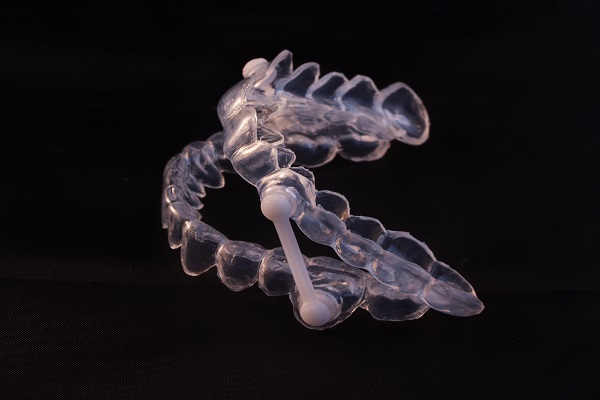How a General Dentist Can Help With Your Sleep Apnea Treatment

Sleep apnea is a common disorder that can leave you feeling tired and sleepy during the day. The condition leads to breathing coming to a stop during sleep, forcing your brain to wake up to restore breathing momentarily. People with the condition can have hundreds of these interruptions during sleep.
Obstructive sleep apnea is caused by your airway being obstructed during sleep, restricting the flow of air. Some of the issues that can lead to this include the tongue falling back into the airway, poor jaw positioning obstructing the airway, and abnormal tissue growths.
Sleep apnea might seem like a minor health issue, but that could not be further from the truth. It has been linked to serious physical and mental issues like depression, strokes, and hypertension. The condition significantly limits the afflicted’s quality of life and their academic, athletic, and work performance.
Getting sleep apnea treatment from a general dentist
Getting treatment for sleep apnea starts with a proper diagnosis being made. The patient’s airways, tongue, jaw, and teeth are carefully examined, looking for signs they might be obstructing the person’s breathing.
3D dental cone x-rays can also be used to search for signs of sleep apnea. Once the patient has been diagnosed with sleep apnea, a dentist might recommend an oral appliance to help open up their airway during sleep.
Oral appliances are customized devices that sometimes look like mouthguards. They are made from an impression of the patient’s teeth, so they fit snuggly. They can be an effective alternative to continuous positive airflow pressure (CPAP) therapy for patients with mild to moderate sleep apnea.
These devices are worn during sleep, and they help to keep the airway open. Wearing an oral appliance also helps to protect teeth against the effects of teeth grinding. The most common oral appliance used to address sleep apnea works by moving the wearer’s lower jaw forward and opening up their airway. Others work by preventing the tongue or other tissues from restricting the flow of air through the airways.
Some of the oral appliances a dentist can use to alleviate the effects of sleep apnea include:
1. Mandibular advancement device
These are the most commonly used appliance for sleep apnea, and it works by repositioning the patient’s jaw. It looks similar to a mouth guard worn during contact sports, and it snaps onto the lower and upper dental arches the same way.
Mandibular advancement devices come with metal hinges that push the lower jaw forward. Top-end devices allow patients – or their dentist – to control how much the device pushes the jaw forward.
2. Tongue retaining device
As the name implies, these devices work as splints and hold on to the wearer’s tongue, preventing it from falling back into the airway.
Restore quality sleep
An oral appliance can help you to alleviate the effects of obstructive sleep apnea, restoring your quality of life. Give us a call or visit our Mansfield clinic to set up an appointment with our dentist.
Request an appointment here: https://www.tonicarrddsinspiringsmiles.com or call Toni Carr, DDS Inspiring Smiles at (682) 999-3696 for an appointment in our Mansfield office.
Check out what others are saying about our dental services on Yelp: Sleep Apnea in Mansfield, TX.
Related Posts
Sleep apnea is an under-recognized medical condition that can be diagnosed and treated by a sleep apnea specialist. Sleep apnea can lead to hypertension, heart disease, depression, and even death when sleep apnea goes untreated. Some dental sleep apnea specialists can prescribe appliances or oral mandibular advancement devices that prevent the tongue from blocking the…
Obstructive sleep apnea is a disorder many people suffer from. Essentially, it is when breathing stops while sleeping. While this is considered a serious medical condition, the consequences of having sleep apnea usually do not pose a health risk. However, sometimes it can be dangerous, so you should always speak to your doctor upon noticing…
Implant restorations are a highly effective solution for replacing missing teeth, offering patients a durable, natural-looking option that restores functionality and aesthetics. They involve a process that combines the surgical placement of a dental implant with the creation and attachment of a prosthetic crown or other dental appliance. Take a look at this step-by-step guide…
If you are searching online for “holistic dentistry near me,” you are likely looking for a natural approach to dental care. Holistic dentistry prioritizes safe dental treatments that promote a healthy smile without compromising the body’s balance. Focusing on prevention and whole-body health offers a thoughtful alternative to traditional dental care. Making the most out…
